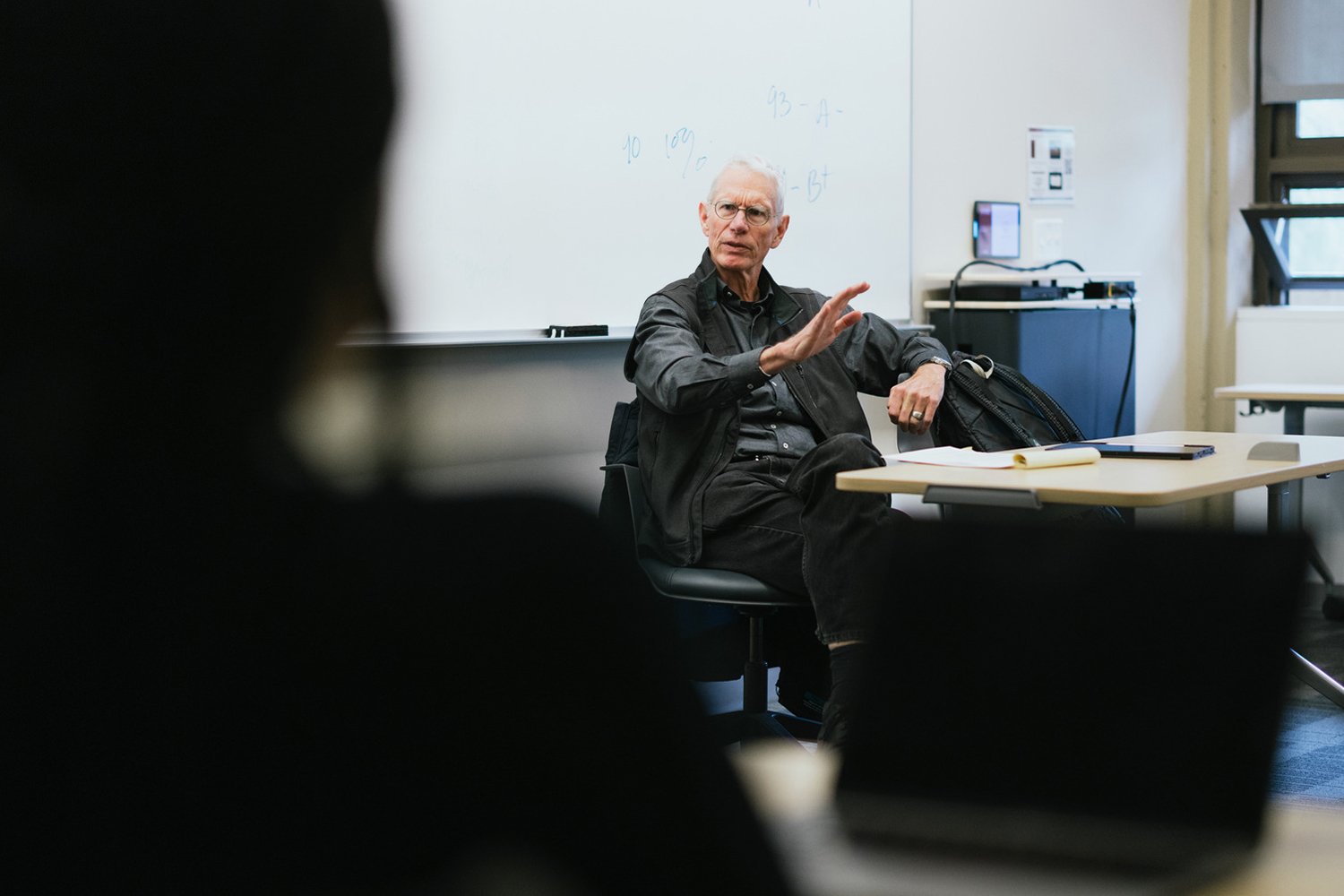Throughout our lives, we have an experience – a missed opportunity, a crushing rejection – that makes us wonder how things might have unfolded differently.
For Stanford scholar Josiah Ober, such a moment came in 1983 when the Greek government denied his application for archaeological fieldwork crucial to his research.
At the time, Ober was a young assistant professor in Montana State University’s History Department, facing a looming tenure deadline. Forced to pivot, he remembered notes he had jotted down after reading a speech by the Greek orator and statesman, Demosthenes. Specifically, Ober was struck by a contradiction: Demosthenes, a wealthy elite, spoke out in public against the very privileges he benefited from.
Over the next six years, Ober studied how elite and non-elite citizens coexisted in Athens and together, helped foster Athenian democracy. His analysis, blending political sociology with history, culminated in a groundbreaking book, Mass and Elite in Democratic Athens: Rhetoric, Ideology, and the Power of the People (Princeton University Press, 1989).
The book arrived at a pivotal moment for world history – 1989 saw the collapse of communism in Soviet Russia, the fall of the Berlin Wall in East Germany, and other uprisings across Central Europe, including Poland and Hungary. With many fledgling countries building sovereign, self-governing states of their own, there was a keen interest to better understand how democracies succeed or fail. Ober’s study of ancient Greece provided valuable insights.
The book changed Ober’s life. “It made my career,” he said.
In 1991, he joined the faculty at Princeton, and in 2006, he moved to Stanford, where he is now the Markos & Eleni Kounalakis Chair in Honor of Constantine Mitsotakis in the School of Humanities and Sciences (H&S), holding joint appointments in political science and classics. He recently became a senior fellow at the Hoover Institution.
Inside Mass and Elite is a dedication to a powerful force in Ober’s life: his father. The inscription reads: “For my father, Nathaniel Ober, whose praxis helped me to formulate a hypothesis.”
Nathaniel Ober, an educator and civil rights advocate, served as a high school principal in Missouri and later as a superintendent of secondary schools in Minneapolis, Minnesota, during desegregation. He participated in the now-famous Selma to Montgomery marches led by Martin Luther King Jr in 1965, a profound experience that reinforced his determination to work for racial equality. Committed to his principles, he insisted that his four children attend schools in the most impoverished districts of Minneapolis.
“He wanted us to learn for ourselves what it was to live in a world in which we weren’t privileged,” Ober recalled.
For both middle school and high school, Ober and his siblings attended schools he described as “tough.” Racial hostility among many in the student body ran deep, and police – sometimes wearing riot gear – patrolled the school’s hallways.
“There was a fair amount of violence,” Ober remembered.
These experiences gave him a firsthand understanding of the challenge and importance of learning to peacefully live and learn together. These early experiences shaped Ober’s understanding of the complexities of democratic coexistence – a theme that would become central to his academic work.
Throughout his teaching and research, he has examined the tensions that arise from living in a pluralistic society: How can societies honor diverse perspectives while maintaining collective decision-making?
For Ober, ancient Athens offers a compelling case study: Greek citizens were deeply engaged in democratic life and actively participated in self-government. By age 30, most citizens would have attended assemblies, potentially held executive positions, and directly experienced the consequences of their political decisions.
Athenian democracy in the age of Demosthenes and Plato was highly institutionalized, bound by systems upheld by law and constraints on majority power. Moreover, ancient Athenians had to find ways for people with very different worldviews, experiences, and moral commitments to live together productively in a democratic society – an issue just as relevant today.
Most recently, Ober took up this issue in the book, The Civic Bargain: How Democracy Survives (Princeton University Press, 2023). Co-authored with his longtime collaborator, the writer and historian Brooke Manville, they looked across history – from ancient Greece to the founding of America – as a guide for strengthening democracy today.
Beyond scholarship, Ober has also played an instrumental role in reinvigorating civics education at Stanford. As part of the university’s Long-Range Vision planning process, he worked closely with Debra Satz, the Vernon R. and Lysbeth Warren Anderson Dean of H&S, and others to develop programming to equip students with essential skills to support and sustain democratic society.
Those efforts laid the groundwork for COLLEGE 102: Citizenship in the 21st Century, the winter quarter course in Stanford’s first-year requirement program, Civic, Liberal, and Global Education (COLLEGE).
Rather than retire, Ober chose to focus on promoting civics education. He accepted a position at the Hoover Institution, which joined forces with the School of H&S to expand the Stanford Civics Initiative (SCI) to advance civics education at Stanford and beyond.
SCI operates within both H&S and the Hoover Institution’s Center for Revitalizing American Democracy. They recently launched a national Alliance for Civics in the Academy (ACA), a Hoover-supported membership organization that promotes civics programming at colleges and universities across the country.
Ober also works in close collaboration with other efforts across campus working towards this similar goal, including ePluribus Stanford, a new cross-campus effort to create a culture of open and constructive dialogue.
For Ober, cultivating civic courage is crucial in preparing students to navigate a world of differing beliefs.
“To be courageous is to expose yourself to risk, danger, maybe even harm,” Ober said. “That doesn't mean you have to march off to war, as an Athenian citizen would, but it does mean that you should be willing to express a view that may be unpopular, that you open yourself to views that you might find really challenging and hard to accept. That takes real courage.”
